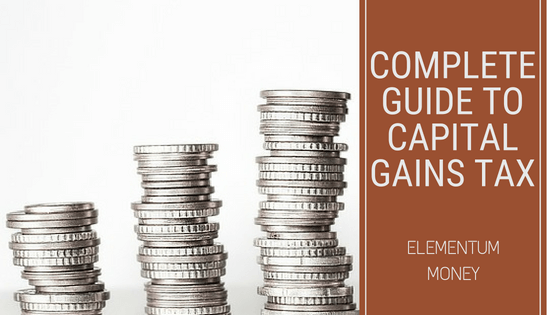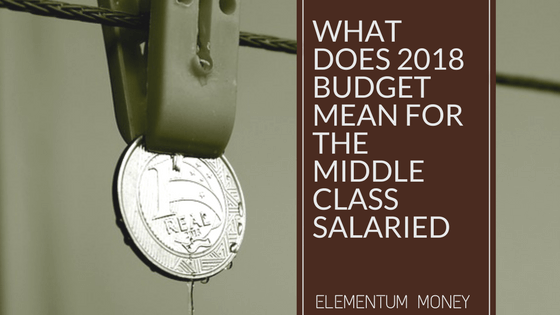
For years, February was a month I always associated with the budget – separately done for Rail Budget and for Union budget towards the end of the month. I still remember trying for years to read the exact script of the budget speech by the Finance Minister and mostly giving up thanks to the macroeconomic complexity of it.
Thanks to years of conditioning to expect the budget conversations swirling around me at the end of next month, I got a rude awakening to realize that hey, the budget is going to be tabled tomorrow. While the budget impacts the entire economy, for us individuals, the main way it impacts us is Income Tax!
Over the last few days, I have seen umpteen business publications talk to experts about their wish list for the Union Budget. Being a Personal Finance blogger, I couldn’t help it but jump on to the bandwagon and right from the point of view of a commonner, right?
So, here go 5 of my radical and crazy points on the Budget wishlist:
No direct taxation – only indirect taxation
Now this is something I firmly believe in. In my experience, the salaried classes end up in an unfair position of getting their salary docked off thanks to income tax and also paying a fair amount for consumption. This really used to pinch when the GST at restaurants was at a massive 18{76b947d7ef5b3424fa3b69da76ad2c33c34408872c6cc7893e56cc055d3cd886} which has now come down to a much more manageable 5{76b947d7ef5b3424fa3b69da76ad2c33c34408872c6cc7893e56cc055d3cd886}.
My idea of taxation especially in a country where enough people manage to evade it is to do away with direct taxation but have exponentially higher taxes on consumption. Consumption increases with disposable income and this should ideally result in better and more equitable tax collection. The only drawback, cash transactions might still make it possible to continue evasion.
My gut says there is a 99{76b947d7ef5b3424fa3b69da76ad2c33c34408872c6cc7893e56cc055d3cd886} probability that this is not going to happen (yeah, I am a realist) so all my other items on the wish list detail further on the existing tax structure.
Tax on equities
There is speculation in the air that to make up for the shortfall in estimated GST collection, the government might end up making changes to the tax structure for equities.
Word on D-Street (Dalal Street) is that the definition of short-term for equity transactions might be extended to 2 years from the existing 1-year term. While I am a firm believer in long-term investing, I believe the definition of short-term should be retained to 1 year to ensure the growth in Mutual funds in India continues. New investors generally start with putting small sums of money in a mutual fund. The fear of losing money in it runs high but having returns taxed only if sold in a year is reassuring to them. Increasing the period of holding mutual funds for tax-free returns from 1 to 2 years might scare away some of the new investors.
However, for direct stocks, I am a bit on the fence on whether the change in the definition of short-term makes any difference at all. To me, there are two types of people who put in money into stock markets – ultra short-term traders or long-term investors. This change in definition might not impact either of the classes as they may remain unaffected.
Another speculation on the street is the re-introduction of long-term capital gain tax on indexed returns in equity. This concept is still valid for real estate and debt products where after a period of 3 years if you sell off an investment, the gains are taxed after making room for standard inflation rates. However, equity is the avenue where small investors can hope to take some risk and get better returns than debt products. Introducing long-term capital gains tax on equity is bound to halt whatever little confidence has been built in the retail investors over the last few months. The slight shift from current consumption to future consumption seen in the populace could shift back to reduce our savings rate. Here’s hoping this terrible idea of taxing long-term capital gains on equities is not really implemented.
Agricultural income beyond a point should be taxed

Agricultural income should be taxed
For years India has been primarily an agrarian country. However, contrary to common sense ALL agricultural income is exempt from income tax. It could even mean a rich corporate guy who ends up buying a farm will need to pay nothing from the income he derives from that plot.
One of the great supporting points for no taxation on agricultural income has been that 86{76b947d7ef5b3424fa3b69da76ad2c33c34408872c6cc7893e56cc055d3cd886} of the farming population owns less than 2 hectares of land making them extremely poor. However, this population would anyway not come into the ambit of income tax as they do not get covered in the minimum income slab.
The 2014 Tax Administration Reform Commission Report enumerates the fact that “Agricultural income of non-agriculturists is being increasingly used as a conduit to avoid tax and for laundering funds, resulting in leakage to the tune of crores in revenue annually.”
Even if the tax is introduced, the implementation would remain challenging considering that most of the transactions happen in cash. Considering the push towards digital India, that should also get resolved soon enough.
For more on this aspect, read this well-detailed article.
Life insurance premium to have a separate section for tax deduction
Currently, life insurance premium is clubbed under Section 80C. According to me, this hurts Life Insurance in India in 2 ways – firstly people end up confusing it with investment which it is not and secondly it gets lost in the multitude of options to fulfill the limit under Section 80C. Anyone repaying a home loan does not need any other investment as principal repayment can easily reach the limit of Section 80C.
On the other hand, health insurance premium has a separate section 80D solely dedicated to the premium. It might be a lesser known section but it is clear that for more tax exemption buy health insurance.
Tax exemption is a powerful tool to integrate good financial habits in the population. Life Insurance is one of the integral products every financially healthy household should equip themselves adequately with and one small tweak by the government could help do that.
NPS should be tax-free on maturity
NPS or National Pension System is one of the new investment avenues gaining popularity among people to save and invest with retirement in mind. Post-2012, when investment up to Rs. 50,000 were allowed additional tax exemption, NPS subscription got a fillip.
Personally, I like to invest where I have the option of withdrawing when I want. Locking up money for 30 years is not something I am very enthusiastic about.
However, for the NPS subscribers, one of the main drawbacks is the tax structure and even the mandatory transfer of maturity amount into an annuity.
For an annuity to give good results, it is ideal to invest in one before retirement. Mandatorily having to invest a minimum 40{76b947d7ef5b3424fa3b69da76ad2c33c34408872c6cc7893e56cc055d3cd886} of the maturity amount in an annuity once you retire seems foolhardy to me.
The tax structure of NPS is also fairly odd. 40{76b947d7ef5b3424fa3b69da76ad2c33c34408872c6cc7893e56cc055d3cd886} of the corpus is tax-free, another 40{76b947d7ef5b3424fa3b69da76ad2c33c34408872c6cc7893e56cc055d3cd886} is tax-free, but the amount has to be mandatorily put into an annuity (where the pension you receive will be taxed) and the remaining 20{76b947d7ef5b3424fa3b69da76ad2c33c34408872c6cc7893e56cc055d3cd886} is taxed. Making the entire proceeds tax-free is a necessity considering returns on competing products like mutual funds and direct stock are tax-free.
Have you given the Union Budget more than a passing thought? What is on your wish list? Let me know in the comments below or email me at aparna@elementummoney.com

Take your first step today. Sign up for the Elementum Money Weekly Newsletter to download the Financial Feminist checklist. Also,get nuggets of financial wisdom with our 3 posts every week, directly to your inbox. Have more questions, feel free to send any of them my way at aparna@elementummoney.com.
Related post:





Leave a Reply